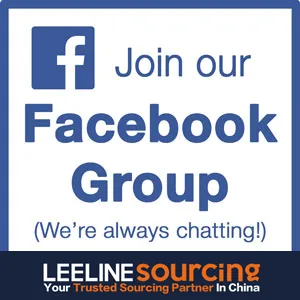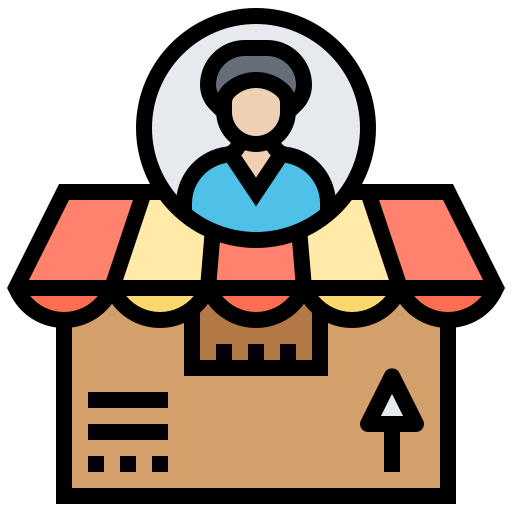Alibaba trade terms are commonly used by most freight forwarders for international transportation. For instance, FOB (Free on Board), CIF (Cost, Insurance, and Freight), FCA (Free Carrier).
Understanding these so-called trade terms is crucial in your shipping process. You’ll be able to ease the deals with your own shipping agent, Chinese supplier, or freight forwarder.
There are over dozens of Alibaba trade terms used by suppliers and shipping companies. Choosing suitable terms based on your needs in the Alibaba shipping process is crucial.
This article will share the common international trade terms used. Let’s get started.

Basic 10 Alibaba trade terms
1. EXW (Ex Works)
EXW (Ex Works) is the simplest shipping method for the seller. The buyer assumes the EXW price like customs clearances and logistic costs.
Most responsibilities under this trade term are under the buyer. For instance, goods collected from the seller’s warehouse and the documentation for insurance paid.
Meanwhile, the seller only has to ensure that the products are delivered safely. The buyer may also request the seller to assist with export license acquisition.
2. FCA (Free Carrier)
Under this Alibaba trade term, the seller is responsible for export clearance at the export port. He is liable for goods delivery to the carrier at the stated final destination.
If the seller’s location is the final delivery location, he only has to load the items. (unless otherwise agreed)
The buyer is responsible for loading charges, main carriage, onward discharge carriage, and import duties.
3. FAS (Free Alongside Ship)
This Alibaba trade term is only used for ocean freight shipping or sea freight. The seller is responsible for bringing the items free alongside the ship at the port dock.
The seller is liable for customs processing fees at the point of origin. He must also handle all the freight costs and hazards until the goods are deposited at the export port.
The buyer is responsible for all shipping expenses and risks for overseas transit.
4. FOB (Free on Board)
In FOB, the seller is responsible only until the goods arrive at the export port. Then, he can mark the transaction as complete.
While not as extensive as EXW, most obligations are under the buyer in FOB (Free on Board).
The buyer will handle all documentation after the goods depart the port. For instance, custom clearance documentation, certificates of conformity (COC), and insurance cost. The FOB price might include other hidden costs.
5. CFR (Cost and Freight)
Under this Alibaba trade term, the seller is responsible for the export customs clearance. The seller pays the shipping costs to the stated destination port and delivers onboard the ship.
When the seller transfers the items to the ship, the buyer transfers the risk. The buyer bears any other shipping fee from the destination port. CFR should only be used for maritime, inland ocean shipping, or sea freight.
6. CIF (Cost, Insurance, and Freight)
Under CIF (Cost, Insurance, and Freight), the seller handles the cargo until it reaches the import port. The CIF shipping costs include freight costs and cargo insurance costs.
“Beyond the ship’s rails” and into the import port is commonly considered a formal point. The seller’s liability is transferred to the buyer at this point. The buyer pays the shipping costs from the port to the buyer’s warehouse under Cost, Insurance, and Freight.
7. CPT (Carriage Paid To)
Under this Alibaba trade term, the seller is responsible for delivering the products to its carrier. He must complete the customs clearance at the export port. The seller’s responsibility is to arrange shipment costs. These costs will be factored into the selling price.
In the CPT trade term, the risk like FCA is instantly transferred to the buyer when delivery is made. This trade term can be used in all modes of shipping for international trade.
8. CIP (Carriage and Insurance Paid To)
In CIP, the seller is responsible for all risks until the items are delivered to the first carrier. Once this happens, all risks pass to the buyer.
But, until the freight reaches the stated final destination, the seller is responsible for all the cost. He needs to have the insurance costs and costs of carriage paid. This is similar to CPT, but the seller must get the insurance paid for all-risk insurance coverage.
9. DAT (Delivered at Terminal)
DAT means that the seller delivers the products after unloading them from the arriving shipping method. Then, it is the buyer’s responsibility to handle the goods at the specified destination.
You can use DAT regardless of the shipping method. It can be used even when multiple modes of transportation are employed. The seller pays for export clearance where appropriate. The buyer takes responsibility for the import customs clearance process and pays the import duty.
10. DAP (Delivered At Place)
The seller is responsible for arranging shipment to the final destination under DAP. He bears all risks up to unloading. The buyer’s responsibility is to pay the unloading risks and costs incurred at the import port.
Unless both parties agree otherwise, the seller cannot seek reimbursement for unloading costs. The seller pays for export customs fees that were relevant in this shipping agreement.
The buyer pays the duties and handles all the paperwork for import customs clearance.
11. DDP (Delivered Duty Paid)
DDP (Delivered Duty Paid) establishes maximum seller’s responsibility and minimum obligation by a buyer. The seller is responsible for good delivery to the buyer’s final destination.
The delivery duty paid includes inland transportation from the import port to the buyer’s final destination. The seller pays all the shipping costs, bears all risks, and holds the goods in the import port. The costs involved are import duties, taxes, customs fees, and others.
Suggested reading: Alibaba DDP Shipping
Suggested reading: Alibaba Payment
Suggested reading: Best China Products To Import
Suggested reading: FBA Shipping From China to Amazon
Suggested reading: China Import Agent
Suggested reading: Best 7 Ways to Use Alibaba RFQ
Want to ship from Alibaba easily and safely?
Leeline Sourcing helps buyers source the best selling product on Alibaba and solve all their shipping problems at the best service.
Shipping Process
- Review the Shipping Regulations
Check the local and foreign regulations from a reliable source.
- Select the Suitable Shipping Methods
There are many Alibaba trade terms and shipping modes available. Each has its pros and cons, so weigh your options carefully.
- Pick a Freight Forwarder
Ask if this freight forwarder offers a commercial route between the two countries.
- Look for a Customs Broker
They will assist in resolving issues relating to their country’s import laws and fees.
- Gather Customs Information from Your Buyer
It is to complete the customs paperwork. Each exporting and importing port requires different information.
- Get the Shipment Ready
While packing your order, Note the size restrictions imposed by your freight forwarder.
- Give the Order to the Freight Forwarder
Ensure to confirm that the package has been received.
- Follow up with Your Buyers
Ask your buyers whether the goods are delivered on time and look for their feedback.
Suggested reading: Alibaba Shipping methods and shipping costs
Suggested reading: Made In China VS Alibaba
Suggested reading: Chinese Trading Company
Suggested reading: 1688 vs Taobao
Suggested reading: Best 10 Alibaba Inspection Service Companies
Suggested reading: China Export Agent
FAQs
What are the advantages of working with freight forwarders?
A China freight forwarder can offer you speed and convenience. They can follow up closely and solve any issues that arise asap.
Besides, a China freight forwarder has the experience and expertise to handle customs clearance. You can also gain a volume advantage, which means lower rates on your international trade.
What are the most common Alibaba trade terms?
Some Alibaba trade terms are applicable for any shipping mode. For instance, EXW, FCA, CPT, CIP, DAT, DAP, DPP.
Some international trade terms are applicable for inland sea freight online. For example, FAS, FOB, CFR, CIF.
The most common Alibaba trade terms are FOB, CIF, EXW, DDU, and DDP.
How to decide the most suitable international trade term?
You should decide the costs and risks you want to take control of. Though the Free on Board (FOB) price and EXW price are lower, you’ll carry more responsibilities.
Besides, you should know your counterpart’s trust level and mutual understanding. It is also crucial to decide on your shipping method.
What are the main differences between FOB and CIF?
Under the FOB trade term, the seller handles the goods to his nearest port. Buyers are recommended not to use FOB to ensure safe shipment.
Under the CIF trade term, the seller is responsible for the good’s delivery. It includes the insurance cost and risks until it reaches the buyer’s destination. delivered
What’s Next
I hope this article shares all the international trade terms information you need. These so-called shipping terms are essential to ease your international transportation. You must know the responsibilities held by the parties involved.
You can also communicate with a shipping company to choose suitable Alibaba trade terms.
Tell the shipping company the size and quantity of your products. It is also crucial to tell the courier company your preferred shipping mode, like sea or air freight.
Talk to Leeline Sourcing to learn more about international commercial terms. You can also visit our website to discover about international product sourcing.









This post clarified a lot about trade terms used on Alibaba. Understanding these can really help in negotiating better deals and avoiding misunderstandings. Thanks for this insightful article!
This article on trade terms was quite informative. Could you elaborate on the benefits of FOB vs CIF terms specifically for small businesses?
The world of trade terms is vast and often confusing. Your guide to navigating these on Alibaba is incredibly helpful, especially for those of us who aren’t logistics experts. Appreciate the clarity and practical advice!
Understanding Alibaba’s trade terms is crucial for global transactions. This breakdown simplifies complex logistics, offering clarity for newcomers. Anyone else find this as a helpful starting point?
Navigating trade terms can be complex, but this article lays out everything you need to know in a clear, understandable way. Highly informative!
Navigating trade terms is essential for international business. This post provides clarity. Anyone have additional tips for smooth transactions?
The trade terms on Alibaba can be complex, but your guide makes them easy to understand. This is crucial knowledge for anyone involved in international trade. Much appreciated!
The trade terms guide was incredibly enlightening! Knowing these terms is crucial for smooth transactions, and your article was exactly what I needed.
Navigating trade terms can be complex. What’s the most overlooked aspect that every buyer should know?
Grasping trade terms is crucial for international transactions. Does anyone have a preferred trade term that they find most beneficial?
Trade terms can be so confusing for beginners. Your breakdown of each term makes international trading much more accessible. Do you have a cheat sheet for quick reference?
This article clarified so much about trade terms! I’m curious, have you encountered any common misunderstandings about these terms that lead to disputes, and how can they be avoided?
Great post on the intricacies of trade terms on Alibaba! It’s such an important aspect of international trade. In your experience, how flexible are suppliers on Alibaba when it comes to negotiating these terms?
Insightful article on Alibaba trade terms. Looking for an experienced agent in Vietnam to help navigate these. Recommendations?